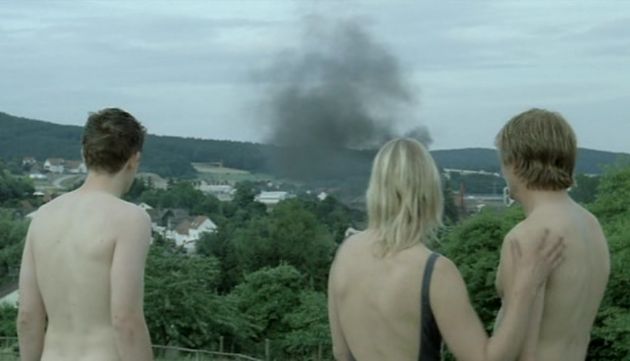Arslan's foray into genre exercise is perhaps one of the tightest heist film that would make Michael Mann blush. There is nothing remarkable about the plot: A criminal gets out of the jail. He regroups and plans another job with his former associates. His old boss and a corrupt cop are on his trail, and that sets up for various confrontations.
It's not 'what' that's important in In the Shadows, it's 'how'. The mechanics of procedural takes a precedent- getting unregistered guns, counting money, getting rid of the bodies and simple wait-in-the-corners-until-bad-guys-approach-then-shoot set ups, not one moment of the film is wasted. Arslan's treatment of locations is also impeccably economical and has an almost documentary feel to it. It's the empty parking lot, non-descriptive hotel rooms and corridors and gas stations off the freeway, not some recognizable landmarks. But the still shots of those places provide the sense of real and concreteness against the characters who are constantly in motion. People are speaking German but our aptly named protagonist Trojan (Mišel Matičević), with his broad lion face, doesn't come across as a German. In this economical climate, even the heist money is modest- 600,000 euros.
Arslan, a German-Turkish filmmaker who has made a point early in his career not to repeat what he's done previously, makes a sly turn with In the Shadows. At the onset, In The Shadows might not be the best film to represent him as one of filmmakers of the tenuous Berlin School. Although not politically as blunt as fellow filmmaker Petzold in his films, Arslan acknowledges in his (whatever the genre might be) the influx of immigrants which Germany had never experienced before in its history.
In the Shadows plays part of MoMA Film Series The Berlin School: Films from the Berliner Schule Nov.20 through Dec.6. Please visit MoMA website for details.
